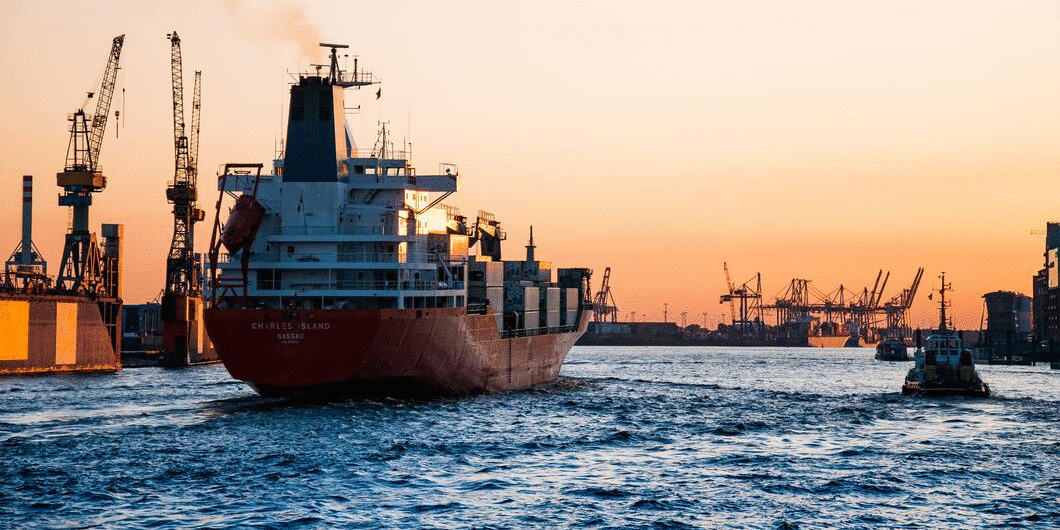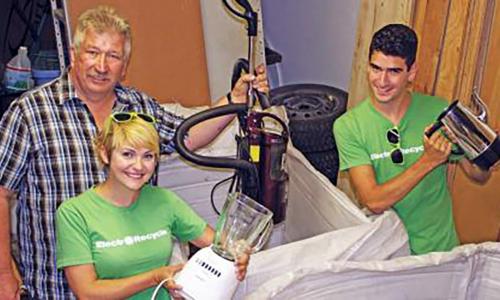
Opportunity is everywhere, but we all get stuck looking in the same place. Working at Seaspan has shown me how to think outside the box when it comes to the future career paths that I could take and this was one of the most valuable lessons that I will ever learn. The best part is that it was a lesson that could not be taught in a classroom or found in a book. The student that walked into the doors of Seaspan with only two years completed at SFU was a completely different one than the one that walked out four months later. I have been transformed through this experience gaining skills and also new perspectives that would have never crossed my mind.
Why would Seaspan, a company that provides services such as deep sea and coastal transportation, shipbuilding, ship repair, and bunkering to Western North America, need to hire someone striving for a kinesiology degree? After beginning my first co-op at Seaspan, this was the most frequent question that I received from my friends and peers.On my first day, I probably could not have answered these questions in enough detail to provide a sufficient answer because at first I was not quite sure myself. But now walking out the other side four months later, I think I have figured out the answer.
When most people find out I am studying Kinesiology I am typically asked if I want my career to include physical education, to be a personal trainer and many other occupations along these lines. So much of Kinesiology has been crammed into these classic stereotypical jobs. I am in no way saying that these jobs are bad, but that everyone studying kinesiology gets thrown into one pile. At first this was how I saw it as well, but going out into the shipyards of Seaspan, my views have been revolutionized.
I used to look over and see the tugboats when I rode the seabus and see the Vancouver Drydock when I drove down Lonsdale. Seaspan is a very well know company in North Vancouver where I have grown up. I think that many people, like myself, only saw the tugs and ships and thought of them as objects. I never thought about the people that were out there on those boats and on the shipyards working away in some tough environments to make sure that this company was successful.
During my first week I was sent out into the Vancouver Shipyard. Here I watched welders, mechanics and many different trades men and women work on building different vessels such as the preparation for the Federal Non-Combat boats and the new Cable ferry. These people are industrial athletes. They train in all weather conditions, they lift heavy objects, and move complicated machinery. Not everything that they use is ergonomically suitable for the body and can pose safety risks. As a result of this many different musculoskeletal injuries occur. The Kinesiologists here at Seaspan worked with these employees to help them get suitable treatment and resources for their injuries. On top of this they assisted them in their return to work by modifying shift times and duties to make sure that they weren't putting themselves in a situation where damaging their previous injury was possible. In all of this some of my duties included making phone calls to the employees to get updates on their situations, helping format and plan the gradual returns to work, assisting with the paperwork involved in the claims, going out to the different job sites, looking at the job demands and learn to look at the workplaces from an ergonomic perspective.
The next week I was fortunate enough to be able to get a tour of the tug boats and an opportunity to drive one. Let me tell you, I spun in a circle for a good few minutes, but then got the boat to go in what I thought was a perfect straight line. The wake behind the boat might tell you otherwise. Being out on the tugboat was a perfect opportunity to ask the captain and the deckhands about their job. Their job is a week on week off lifestyle, they have to sleep on the boats depending on the job and sometimes get up at the earliest hours of the morning to provide services with these boats. Not only is it a mentally exhausting job, it is a physically demanding job. There is vibration, currents, heavy objects and many more tasks that make it physically demanding. There were many other site visits with occupational therapists and rehabilitation coordinators that I got to experience. One visit was to the Vancouver Drydock where large vessels are being repaired. These people have to climb up and down ladders, bend over in awkward angles and crawl through claustrophobic spaces. Another visit was to the top of Canada’s largest Gantry crane. Its spectacular views, its ability to lift 300 T, it’s gruelling stair climb to the top, and it’s enormous heights make it very physically and emotionally challenging - and not without risk.
The human level is where the kinesiology comes into play. These injuries are a lot different from just being injured in a recreational sports league, because like professional athletes, this is not just a sport it is a career. One injury can be detrimental to the lives of the employee and their family. I got to experience a close up look at what happens behind the scenes of these injuries and see all the different processes that take place in order to look after the needs of the employer without jeopardizing the health and wellness of an employee. The kinesiologists that I worked with set up plans to help accommodate people's injuries as best as possible. They would also schedule gradual return to work plans and where necessary helped them seek accommodation in different jobs within the company or at another company if their injury prevented them from returning to their pre-injury job. At first I got to shadow these different roles and as time went on some of the jobs I was involved with were assisting and helping with the gradual return to work plan, the job demand analysis, and the phone calls and paper work involved with keeping the claims updated. One takeaway that I got from each different job was that none of them are easy. Each has its own set of physical and mental demands that can overload the employees. One mistake from yourself or another person can be enough. Having the kinesiologist in the company is a fundamental part of the health and wellness of everyone working for Seaspan.
This co-op has helped me learn the different routes my career could take. I have learned valuable skills in ability management, health, safety, wellness, ergonomics and kinesiology that I never would have learned from a textbook. This hands on experience and the chance to shadow professionals in this field is a once in a lifetime experience and I know this will shape the path that I take in the future.
Walking out the doors four months later I can now answer the question as to why kinesiology shouldn’t just be thrown into a pile of the same colour shirts. Kinesiology is the study of human movement. The body is utilized in so many different ways and there are some spectacular jobs that involve the use of the body. This co-op has radically changed my views of where I could end up working with a kinesiology degree. My mind has been opened up to many different ideas and opportunities. There are no limits as to where myself or anyone else striving for this major can go.















